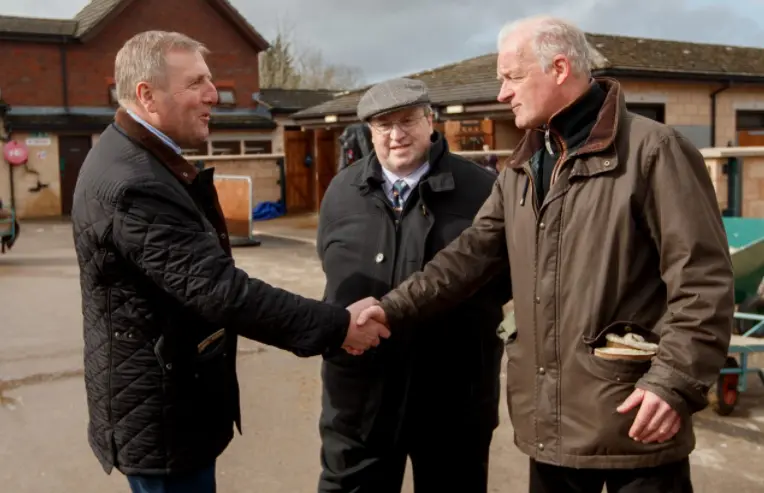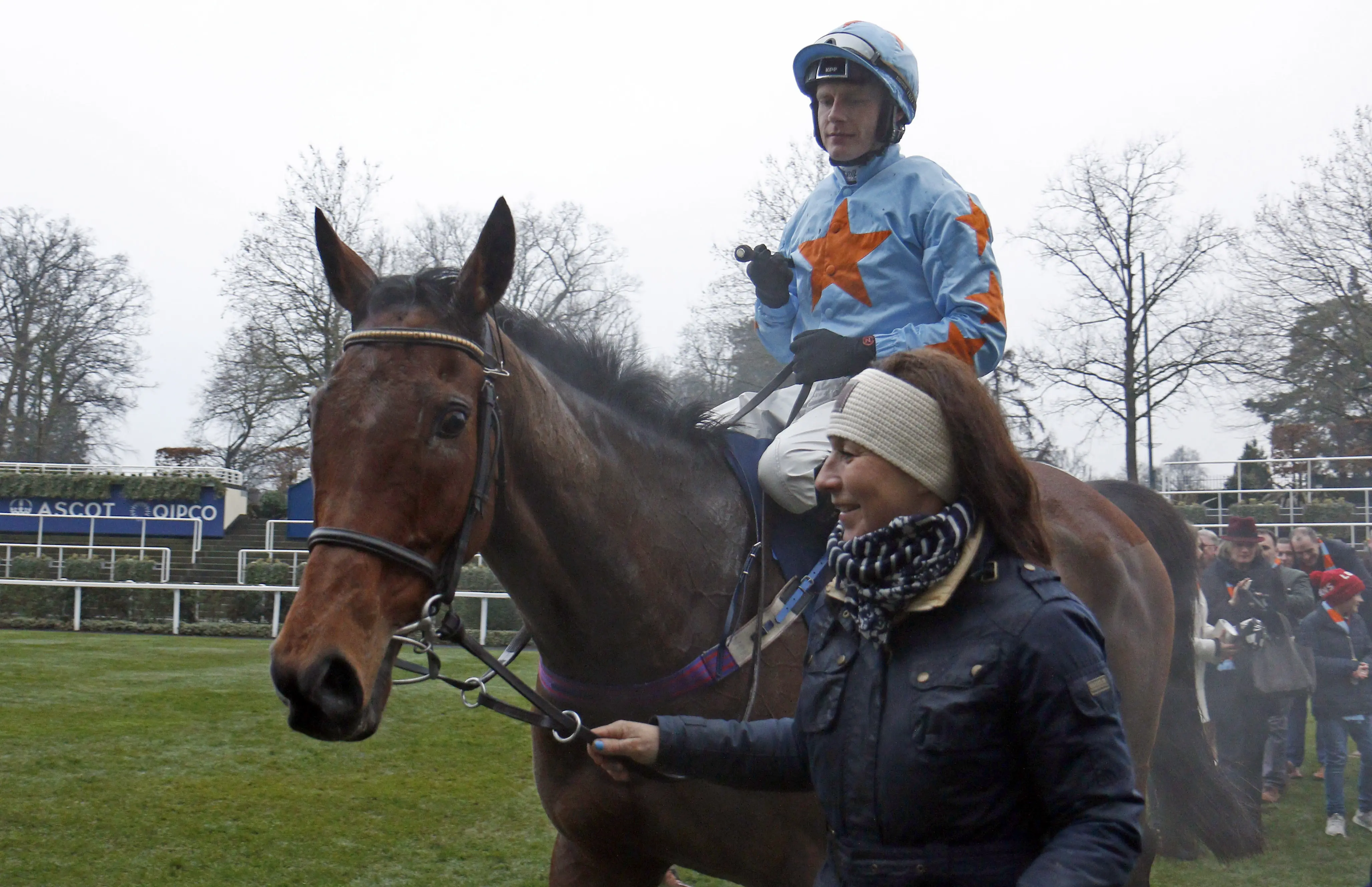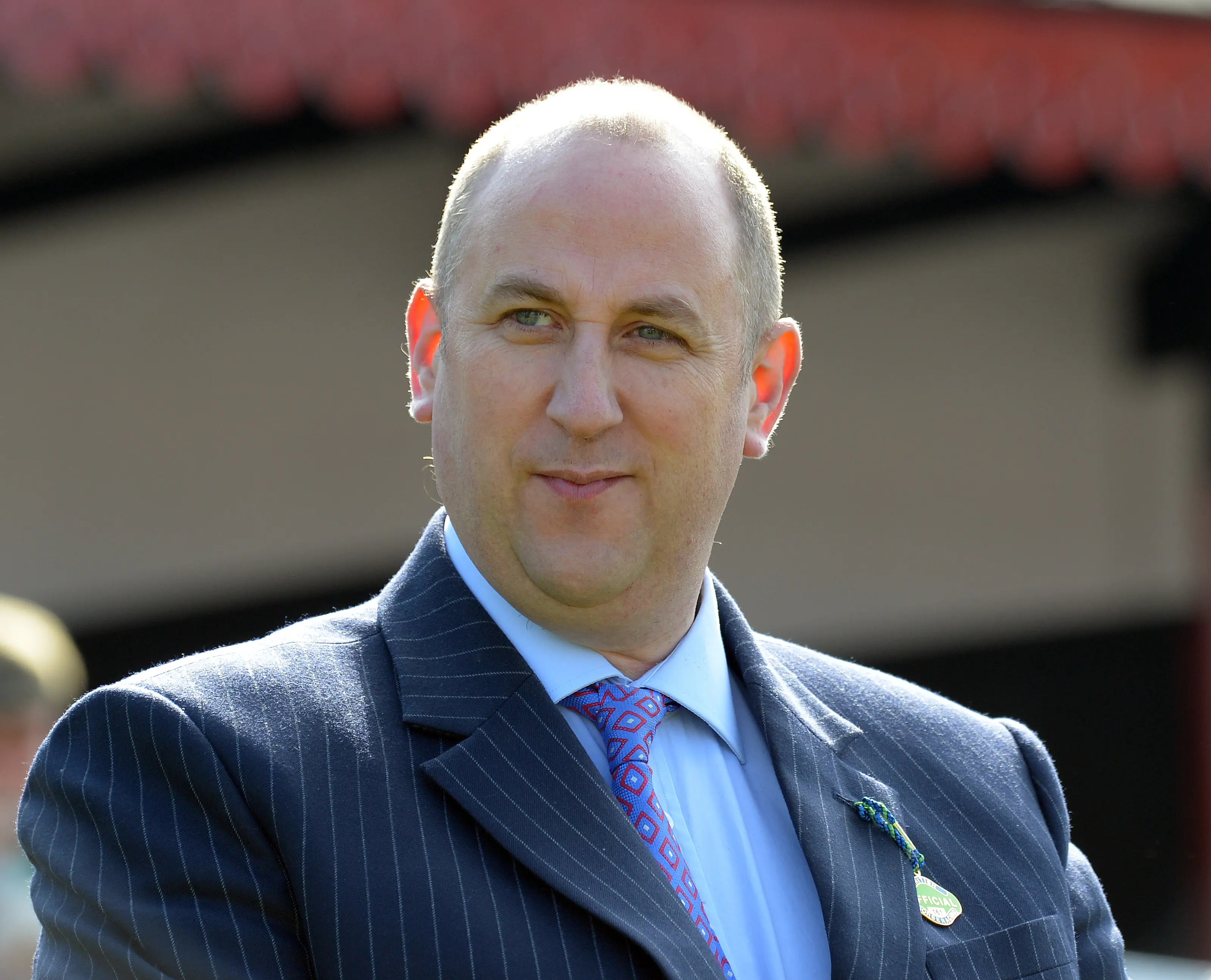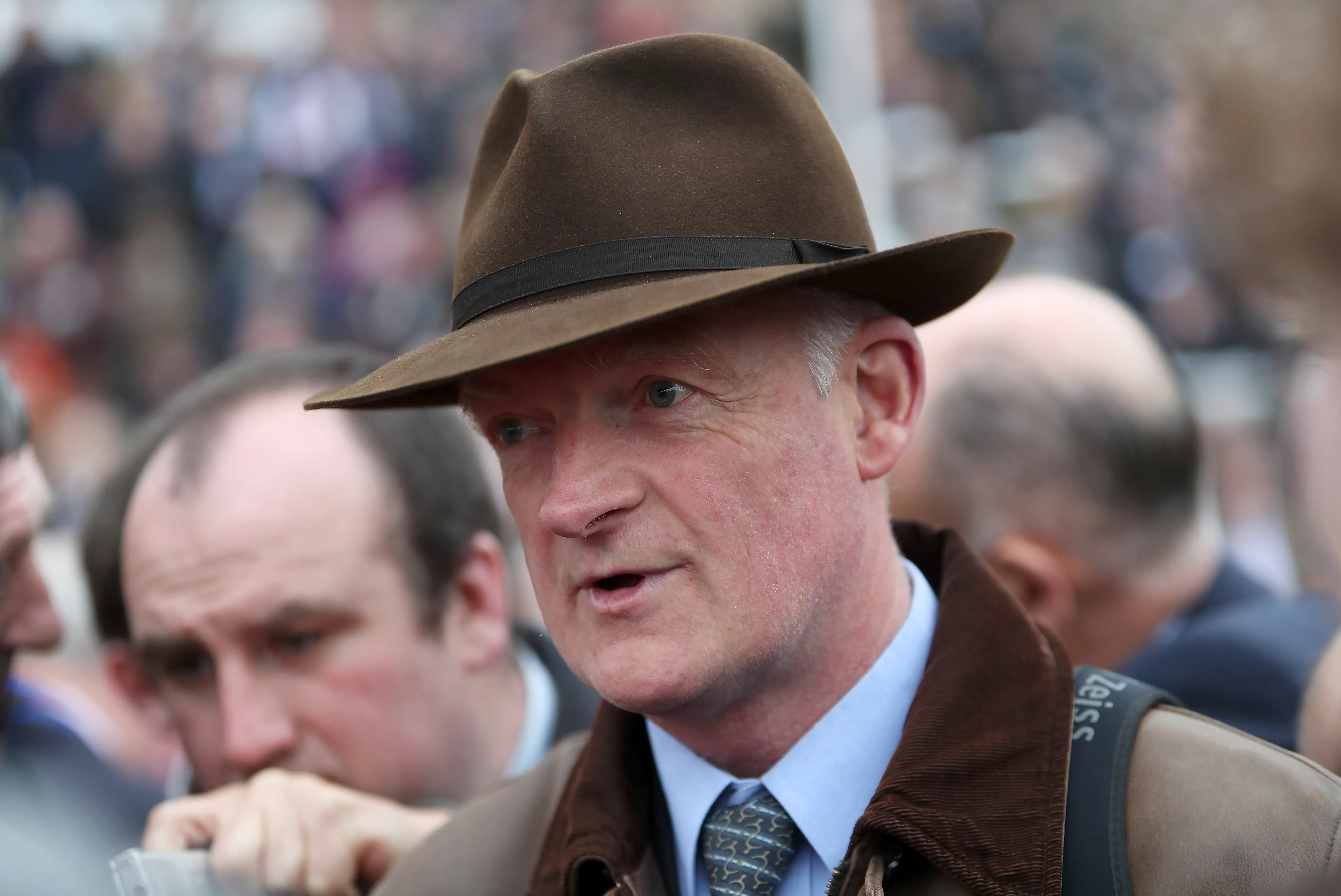Login
BLACK FRIDAY
Willie Mullins says Irish have advantage over British counterparts
By Geoffrey Riddle
Last Updated: Tue 5 Dec 2023
Why were Ireland again so dominant at the Cheltenham Festival? In a special report, Geoffrey Riddle talks to leading players in Ireland and Britain, studies the statistics and considers the possible implications of Brexit.
Penhill was one of seven Cheltenham Festival winners for Mullins (PA)
By Geoffrey Riddle
Willie Mullins has pointed to the Irish programme and structure as the underlying reason why Ireland has performed so well at the past two Cheltenham Festivals but has warned that the imminent threat of Brexit could derail the progress.
Last week Irish-trained horses blitzed the British at Prestbury Park. Although horses trained in Britain won the three marquee events – Buveur D’air the Champion Hurdle, Altior the Queen Mother Champion Chase and Native River the Gold Cup, the Irish raiders trounced the hosts 17-11.
Gordon Elliott topped the trainers’ charts for the second year in succession, the 38-year-old Davy Russell was the leading jockey and the Gigginstown juggernaut flattened every other owner.
Following Altior's Champion Chase win, the wait for another British victory extended to nine races until Missed Approach held on in the Fulke Walwyn Kim Muir to prevent a ‘green wash’ on the final race of the third day.
When you consider that Ireland 'won' the 2017 Festival 19-9, and the haul has increased virtually every year since the nadir of five wins in 2012, there has been considerable navel-gazing over the past week as to why the Irish have dominated.
“I think it is our programme,” Mullins, the leading Festival trainer now with 61 wins, told Racinguk.com.

Michael Creed, left, the Minister for Agriculture, Food and the Marine, meets with Kavanagh, centre, and Mullins (INPHO/James Crombie)
“In Ireland, when we gave the running of racing to the IHA (Irish Horseracing Authority) and then HRI (Horse Racing Ireland) it made government-backed racing planning and prizemoney. It has ensured that we have a good environment for people to spend money on nice young horses and there is prize-money for them to run for.
“Whereas I find over in England there is very little prize-money in the novice races and you have to go in to the big handicaps. That sets the horses back. Obviously you get the odd horse who is well handicapped and wins a handicap, but English racing is a diet of handicaps and there is no incentive.
“Nobody sets out to buy a handicapper, you set out to buy a good horse, and we have a better system to educate and bring on good horses. I’m sure these things are cyclical, however, these things turn around.”
Looking at the composition of the Irish and British programmes, it is hard to disagree with Mullins’s synopsis of the British landscape.
Last year in Britain 60.3 per cent of National Hunt races were handicaps, which is an increase from 56.1 per cent in 2013. In Ireland last year, there were just 349 handicap hurdles and 178 handicap chases, which combined is just 36 per cent of the 1434 jumps races staged there.

Mullins says English racing is a "diet of handicaps" (Racingfotos)
And Mullins’s maths stack up, too.
Last year in Britain National Hunt horses raced for an average £13,331 in prize-money per race, although the BHA hiked that up to a total purse of £160 million for 2018. Compare that to the Irish jumps horses who were running for an average of €20574.61 (£17,970) and a clearer picture begins to emerge.
Ireland operates at a distinct advantage in their equivalent to the Levy is based on turnover rather than profits. But whatever way you look at it, what comes out in the statistics is that whilst the Irish enjoy ransacking British prize-money so much, the other way around also holds.
In 2016, Irish trained horses ran 1,471 times in Britain winning prize money of £15.3m. In reverse there were 309 British runners at Irish race meetings winning €3.9m in prize money.
Last year Irish horses increased their success in Britain with 205 wins from 1528 runners, although their total prize-money haul dipped slightly to just over £13m.
“Once again, Irish trainers, owners and jockeys have had a week to remember at Cheltenham and I would like to congratulate all of those who enjoyed success including Gordon Elliott, Davy Russell and Gigginstown House Stud, winners of the leading trainer, jockey and owners’ titles,” Brian Kavanagh, CEO of Horse Racing Ireland, said.

Un De Sceaux has been a regular visitor to British shores (PA)
“What has happened on the track merely underlines the current strength and quality of racing in Ireland; we had two memorable days at the Dublin Racing Festival at Leopardstown in early February and I’d expect that the upcoming festivals at Fairyhouse and Punchestown will continue to showcase Irish National Hunt racing at its very best.”
And it is easy to see the benefits of all of this to both countries. For instance, Ireland attracts around 80,000 racegoers from Britain annually, but, as Mullins highlights, this all may be at risk due to unfavourable exchange rates and reduced trade post-Brexit. Ditto if there is a hard border imposed between the Republic and Northern Ireland.
There are currently two courses in Northern Ireland, and with 90 per cent of runners at these fixtures having to cross the border from the south this could lead to real problems.
On Thursday Taoiseach Leo Varadkar warned that a withdrawal treaty and an Irish border deal will have to be struck by October.
The board of Horse Racing Ireland are greatly concerned about the threat created by Brexit and have set up an industry-wide group to examine the issues of concern and to ensure that the concerns are clearly known and addressed.
Currently horses move freely between most EU countries and since the 1960s horses have moved with ease between Ireland, Britain and France. Brexit threatens to bring an end to that arrangement and the racing authorities in the three countries have been working with politicians and officials to ensure a solution will be in place.
Last Friday Michael Creed, Minister for Agriculture, Food and the Marine with responsibility for horse racing in Ireland, accompanied by HRI chairman Joe Keeling and Kavanagh, held a series of meetings with UK and Irish horse racing sector stakeholders, specifically to discuss matters arising from the UK decision to leave the EU.
As an idea of what Brexit might mean for the Irish, 65 per cent of Ireland’s annual foal crop is exported and 80 per cent of those exports are to Britain, who is the single biggest market for Irish bloodstock and a major source of overseas revenue to Ireland.
This trade is worth approximately €225 million each year, but exchange rate volatility could also make Irish exports more expensive. Other key revenue streams could obviously be affected, too.

“I would imagine it will have to be worked on, to bring horses over and back, and indeed the other way around,” Mullins added.
“The English horses will want to continue to come over as they always have. Of course we are delighted that Irish racing is going through a good period – and long may it last, but these things have a habit it turning upside down.”
From this side of the Irish Sea the BHA's Nick Rust said: "Given that one third of horses that run in British racing are imported each year from Ireland or France that would have a significant impact on our industry and also on the breeding industries, not only here but in Ireland and France.
"We would like to see a level playing field between Ireland, France and Britain in terms of the regulations in each country pertaining to the movement of animals, but also in respect to the way horseracing is operated.
"That high health, high welfare status is absolutely key if we are to convince our government to keep the borders open and to keep the prosperity of British racing intact over the next few years. We want to see a level playing field with France and Ireland through this as well.
"I would sincerely hope they will follow suit, it would make sense to do so. If we are looking for harmonisation on horse movement and traceability then it would make sense for that to happen."
It might be the only way to stop the Irish at Cheltenham.
Most viewed
Nicky Henderson: read all his thoughts on Constitution Hill
Watch: Calandagan wins epic Japan Cup in record time
Dave Nevison's Saturday tips: 14-1 Coral Gold Cup fancy
Five horses to follow from our experts on Saturday
Golden Ace wins Fighting Fifth as Constitution Hill and The New Lion fall
Copyright 2025 Racing TV - All Rights Reserved.
Please bet responsibly
Copyright 2025. All rights reserved
